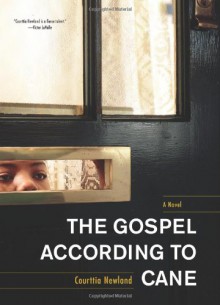Publishers Weekly has named The Gospel According to Cane a 2012-13 Notable African-American Title.""The emotional tension is sometimes almost unbearable as a mother and son attempt to build a relationship out of their shared pain. A unique and very moving novel."--Booklist"A mother's love is...
show more
Publishers Weekly has named The Gospel According to Cane a 2012-13 Notable African-American Title.""The emotional tension is sometimes almost unbearable as a mother and son attempt to build a relationship out of their shared pain. A unique and very moving novel."--Booklist"A mother's love is unbreakable, as Frank O'Connor Award-nominee Newland demonstrates in his latest novel... The storytelling is as captivating as the story itself. Newland, a Jamaican-born British writer, seamlessly integrates the joy, fear, uncertainty, and sadness... Newland's prose is beautiful. His novel--part homecoming narrative in the vein of Toni Morrison's Beloved and part haunting tale of loss similar to Ernest Gaines's In My Father's House--will appeal to all lovers of literary fiction."--Library Journal"The characters are finely drawn with realistic ambiguity and genuinely exhibit the durability of grief and pain."--Publishers Weekly"Newland delivers an intense portrait of mental conflict against a gritty inner-city background. The book we are reading is Beverley Cottrell's journal...This 'journal of my pain,' becomes a spiral of cathartic violence during which Newland deftly keeps the reader guessing."--Kirkus Reviews"One of Britain's most important young black novelists...a truly gifted storyteller."--Time Out LondonCourttia Newland blazes a literary path difficult to challenge, with a style so crisp, searing, and profoundly philosophical. His Gospel According to Cane is grippingly disturbing, pulled from the depth of human despair and sheer madness, possibly best understood in the realm of psychiatry.”--The Gleaner (Jamaica)"As Bev confesses in her journals to events that make her appear less than the fragile idealist she first appeared, Newland’s tale gathers pace and tension. Violence becomes a real possibility. Happy ending or sad? Newland delivers a bit of both in this complex, cathartic portrait of an intelligent, if not always sensible woman, who refuses any longer to be defined by loss."--Toronto Star"The abduction of a child would devastate any family. But what if that child returned, many years later, a young man and a stranger? Could that be even worse? The Gospel According to Cane is a gripping novel that's rich with both grief and great love. Courttia Newland is a fierce talent."--Victor LaValle, author of Big MachineBeverley Cottrell had a dream life: a prestigious job, a beautiful husband and baby boy. This is stolen from her one winter afternoon when her son Malakay is kidnapped from a parked car. Despite a media campaign, a full police investigation, and the offer of a reward, Malakay is never found. Beverley’s marriage soon dissolves and her husband immigrates from England to the U.S. with a new wife.Beverley gives up her job, sells the house, and moves from the leafy suburbs to the inner city to reside in a west London housing project. She cocoons herself in grief, growing more isolated with each passing year. After two decades she gives up any hope of finding her son. She teaches children who have been expelled from school in the local community center, bright kids thrown on society’s scrap heap.Beverley starts to believe she has finally pieced her life togetheruntil a young man starts appearing wherever she goes. Beverley is convinced that he’s stalking her. One dark evening the stalker gets past her security door and calls through her letterbox. He tells her not to be scared. He says that he is Malakay, her son.The Gospel According to Cane is a novel about inner-city youth in contemporary London. It’s a meditation on pain and loss, the burden of heritage, and how the past can blur the present. It’s about trust and the perceived lack of trust, disillusion, and its consequences. A world where everyone is the victim, and no one is to blame.
show less

